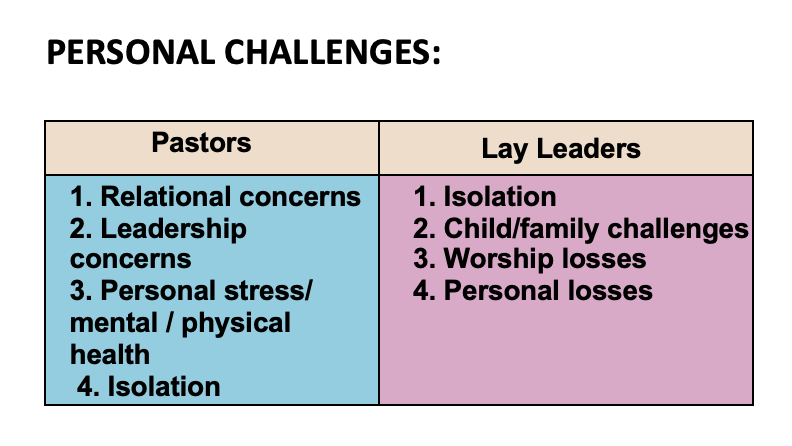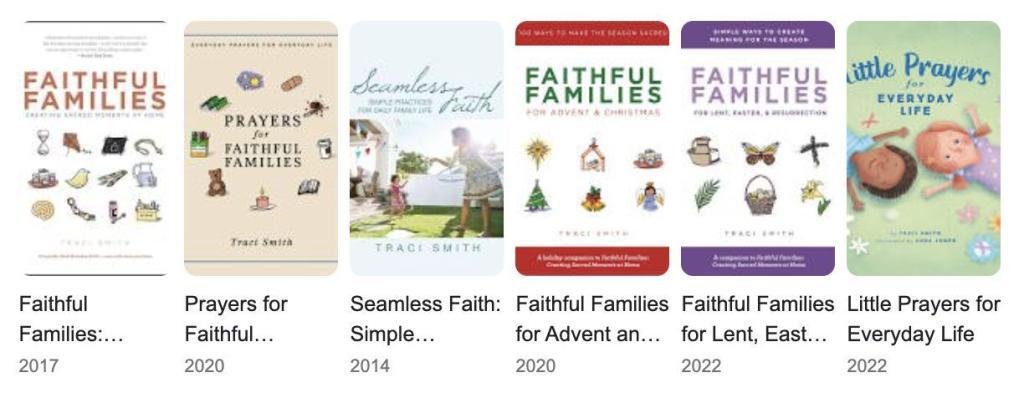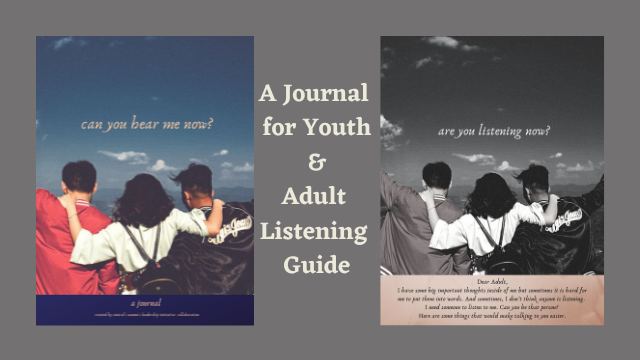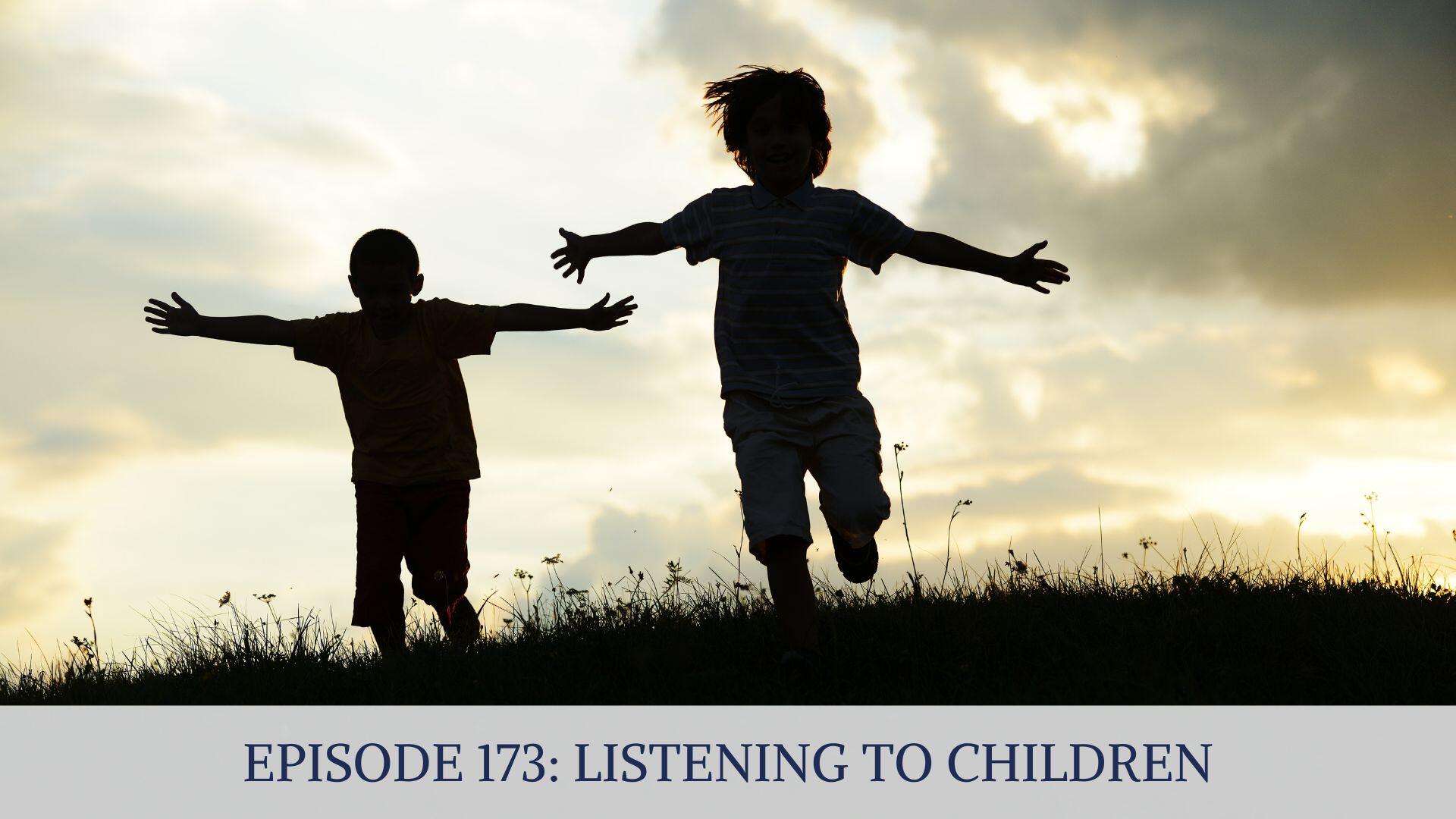One of our most important tasks coming out of the last 30 months is to be listening to children. In the recently released #PandemicPastoring Report, I wrote, “teenagers, children and adults everywhere suffered social isolation and profound stress.” The multiple pandemics have marked our children.

Lay leaders in the study told us about their personal challenges during the multiple pandemics. Following isolation at number one, they shared with us about, “losses in their families, concerns about raising children, finding childcare, and various personal losses and griefs.”
Caring for children and listening to children was top of mind for clergywomen and for lay leaders in our study.
What about you?
Slowing Down to Listen
In a related report I wrote specifically for Austin Seminary, including more in-depth stories from my pandemic season interviews, I shared insights from “Janie” (not her real name). Janie (she/her) is a children’s and youth leader and Sunday School teacher in her mostly white congregation. She is also a public school teacher, and she recommended ways that ministers and pastors might try to understand what has happened to children since March of 2020.
Janie says the “learning loss” is not the big problem of the pandemic life for small children.[i] She says, “My sons are very young, so they never were in school in the first place. So, it’s not that they were traumatized by leaving school. The problem that we, as front-line teachers, are seeing is that kids are just sort of absorbing all the stress and anxiety and tension around them. That is affecting them. And there are big behavior problems just across the board in every age and demographic. And I think [what they need] is for us to be going slower not faster.”
Younger children, and really all children of all ages, need the grown ups in their lives to slow down and listen. It is not that they can always say exactly how they are feeling or what precisely they need. So, they sometimes act out the stress and anxiety they are feeling. However, we listen to children because they need to feel seen and heard.
Listening is one pathway to lowering anxiety and stress. Feeling seen and heard is life-giving.
Faithful Families
Our friend Traci Smith has been creating and publishing resources for families for several years now. One of her latest book for families offers practices to enrich your time and interactions with your children in the seasons of Advent and Christmas. All of her books offer you ways to be with children, listen to children, and attend to the everyday sacredness of being with children. 
Dear Mama God
Our friend, Daneen Akers, author of Holy Troublemakers and Unconventional Saints, is launching a new book that prays with words and beautiful illustrations by Gillian Gamble. The new prayerbook is called Dear Mama God, and it explores with children the sacred and divine images of God in feminine form.  The book listens to the fullness of who children are by listening to the fullness of who God is. Thousands of years of patriarchy have distorted our visions and understandings of God, and Dear Mama God opens up new curiosity about and care from the holy. In my opinion we cannot have enough of this kind of cure for our sense of the sacred. Get on the list to be hear when this beautiful book launches.
The book listens to the fullness of who children are by listening to the fullness of who God is. Thousands of years of patriarchy have distorted our visions and understandings of God, and Dear Mama God opens up new curiosity about and care from the holy. In my opinion we cannot have enough of this kind of cure for our sense of the sacred. Get on the list to be hear when this beautiful book launches.
Foster and Adoptive families
Our very own Erin Robinson Hall contributed to a new book of prayers for foster and adoptive families. She and her spouse Jake Hall expanded their family by adopting three children since the pandemic began in 2020. This new prayerbook listens to the families who are on the fostering and adoptive journeys. And it gives voice to longing and love for children and the parents who care deeply for them.
A Theology of Child Well-Being
My home congregation in Nashville is part of a new “thriving congregations” initiative. We are one of a dozen congregational partners with the Children’s Defense Fund, a leader in advocating for child well-being. The new initiative is funded by the Lilly Endowment. We are just beginning to meet together and think about what it means to listen to children in our churches, neighborhoods, cities and regions. In a recent zoom gathering, our facilitator asked us to think about where and how the work of constructing a theology of child well-being intersected with our own vulnerability. What a great question!
My response came up right away, but it took me a few moments to say it aloud. “Parenting opens up the biggest space in my heart.”
This space is filled by the vulnerability of… Parenting and longing to be a parent. All the heartaches and griefs entangled with parenting. The losses and anxieties of the past 30 months of parenting. Lingering or overwhelming childhood experiences. And so much more than can be captured in words.
The work of constructing a new theology of child well-being is not for some generic group of children, it is for all of us.
A Youth Journal and Adult Listening Guide
Previously I took seminary students to the CDF’s Proctor Institute at Haley Farm. Out of that rich and thought-provoking experience, students created an excellent project. They listened to some teenagers in their own congregations and families. Then they created a journal of questions for teens and a listening guide for adults. Here is what we said in a post about the project last year.
We need some practical strategies. We need watchwords to keep at the top of mind. Especially if we want to survive [the holidays] without regret or remorse. And if we want our children to see our better angels.
We don’t have a comprehensive list, but we do offer one solid suggestion: listen.
That’s it. Listen to each other. Go slowly enough through your days and through the whole holiday break that you actually take time to hear each other. Listening to children and teenagers can be an enormous challenge for adults under stress. Sometimes we need simple reminders to give attention to what really matters.

My hope and prayer for you as you continue navigating a new era of ministry, is that these resources will support both ministers caring for children and the work of pandemic parenting, which did not end with vaccines or a return to face-to-face school. May our Dear Mama God surround you with love and care and guide you in the sacred work of caring for and listening to children.
[i] Corey Turner, “6 things we’ve learned about how the pandemic disrupted learning” on National Public Radio’s “All Things Considered” (June 6, 2022).




